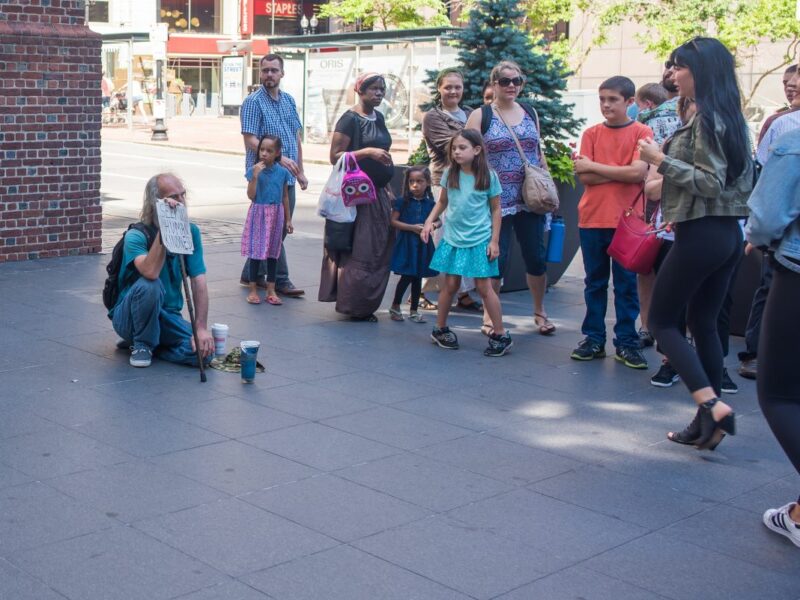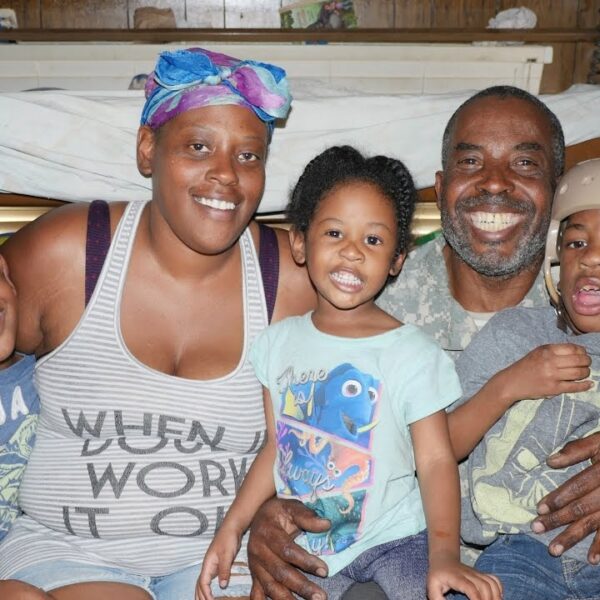Many of our modern comforts were found through tragedy. In trying times, we learn a lot… a lot about who we are as opposed to who we want to be, a lot about what’s important as opposed to what’s convenient, and a lot about what we stand for once we realize where we truly stand.
Tough times cause us to glance back at our footprints and ask ourselves if the direction we’ve been walking toward is where we really want to go.
The COVID-19 pandemic has been no exception. It could be argued that when the world shut down, its patrons woke up to the harsh reality hidden behind a flashy film of entertainment venues, shopping and eating extravaganzas, and overindulgence of epic proportions. With all of those distractions gone, many of us were alone, truly alone. Perhaps we became aware of it for the very first time.
As we gazed from our windows isolated, we took solace that we had a home to be confined in. We also took notice of the fact that others were not so fortunate in this regard.
In an extensive Invisible People research study conducted in 2020, we concluded that 67% of Americans believe the pandemic has made the need for housing even more urgent. 73% of participants expressed concern about the increase in homelessness they perceived in the last year.
While Homelessness is Indeed Growing, this Crisis has been Raging for Decades
According to the National Alliance to End Homelessness, the current unhoused population has continued to increase year over year for the past four years consecutively. However, homelessness has been recognized as a national crisis since the 1980s. To bring a more historical lens to the matter, the shanty towns of the early 1920s were once bursting with somewhere between 1 million and 2 million Americans with no stable place to sleep for the night.
Still, America is a country where policy is largely fueled by public opinion.
From the Great Depression to the most recent recession up to the present day, media has worked to mislead the public about how big the homeless issue is and, perhaps more importantly, its root cause. This misinformation has served to influence policies on the state and national levels. In the end, the criminalization of homelessness was given precedence to more viable solutions. The good news is this is changing.
At the Behest of Local Residents, The Washington Legislature is Investing $300 Million Toward Affordable Housing
On April 15, 2022, The Seattle Times announced a “historic” move in the direction of rapid, affordable housing. The Washington spending plan has already been passed by local legislators. It includes $300 million in funding for rapid, affordable housing solutions. This number is unparalleled and will undoubtedly make a dent in the homeless crisis and the history books.
“The only way we are going to end homelessness in King County is by building more affordable homes. People in positions of power are starting to see that connection and they’re making investments to reflect that,” claimed public affairs consultant Erik Houser, who stands for unhoused community members in an organization called We Are In.
The Plan Features a Targeted Approach to Homelessness
In a major move to put excess funding from the American Rescue Plan to good use, Washington legislators put forth a plan to end homelessness that they described as the most targeted and specific nationwide. The budget introduces a new Rapid Capital Housing Acquisition program, which prioritizes promptly constructing affordable homes and shelters. This effectively speeds up a process that has historically taken years and is a backseat to other pressing issues.
In addition to the $300 million for affordable homes, the plan also includes:
- $4 million for emergency adolescent housing. This will combat the increased chance of homelessness that minors exiting state institutions such as foster care and hospitals often experience
- $15 million to expand available facilities dedicated to helping homeless young people
- $145 million in rental assistance and utility payments to keep at-risk renters from falling in arrears
- $45 million to transition unhoused people out of encampments and into permanent supportive housing options
- $55 million to increase the pay of homeless social service workers. There is currently a shortage due to the meager salary.
Recognizing Failures in Previous Policies and Moving Forward
In the past, The Housing Trust Fund was the primary financial backing for all services for homelessness in the region. However, policymakers quickly realized that obtaining the money was a competitive endeavor. The construction of housing was a process that could easily take years.
Rather than continuously attempting the same failing policy by pitching it differently, legislators, acting in the voters’ interest, chose a new strategy with laser-like precision.
Contact Your Local Legislators to Find Out How They’re Spending Their American Rescue Plan Funding
Like so many others, this story serves as proof that public opinion is what shapes government policy. Contact your legislators today and ask them if they’re spending their share of the American Rescue Plan funding on ensuring a future where everybody has a home.













